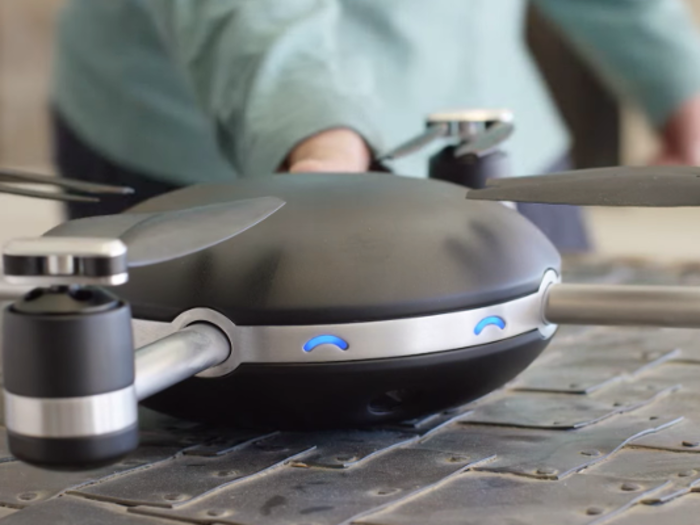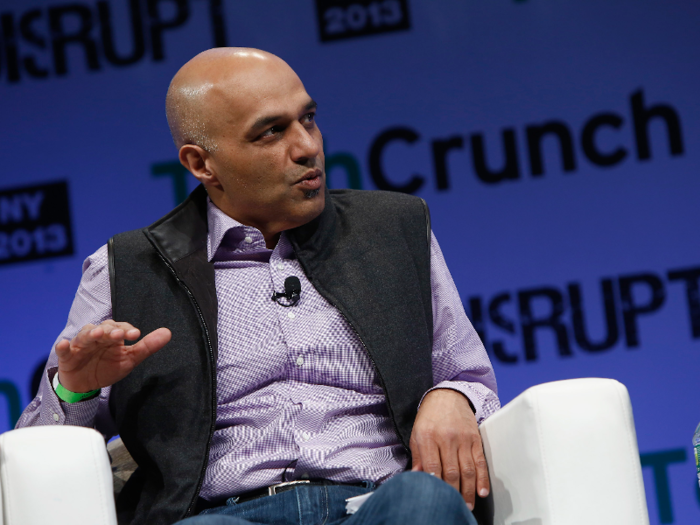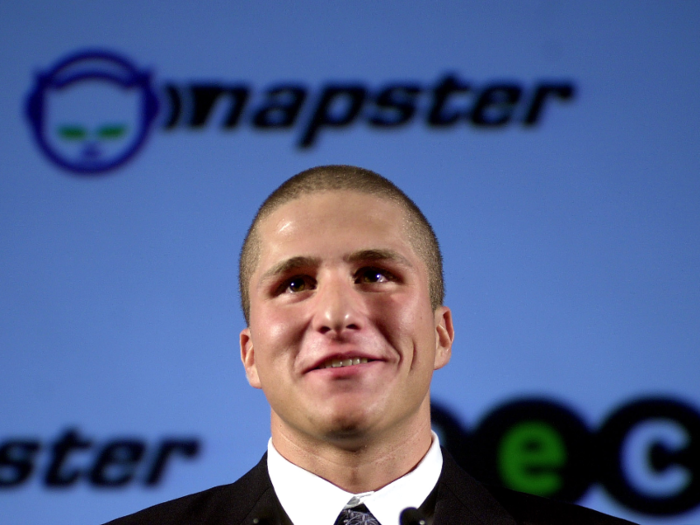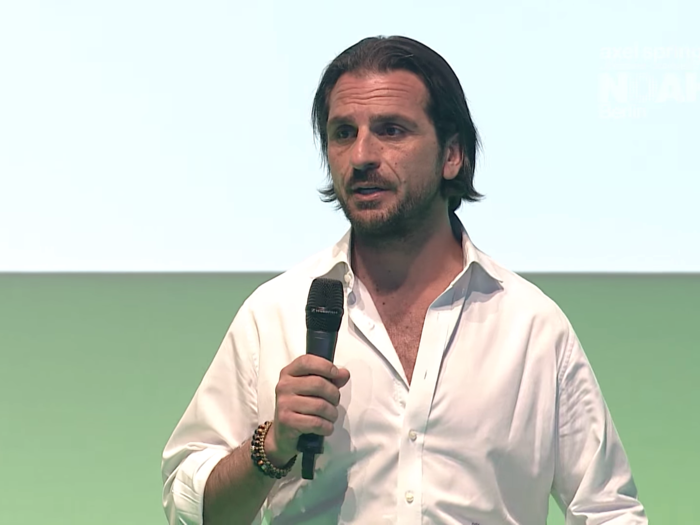- Home
- slideshows
- miscellaneous
- These 7 tech CEOs and executives lost millions, along with the companies they helped build
These 7 tech CEOs and executives lost millions, along with the companies they helped build
By now, Elizabeth Holmes, founder and former CEO of blood-testing company Theranos, is a household name. Holmes was able to secure nearly $1 billion in funding, notably from investors like Rupert Murdoch and US Education Secretary Betsy DeVos, before questions about the technology and fraud charges against Holmes caused Theranos to shut down.

Antoine Balaresque and Henry Bradlow founded drone startup Lily Robotics in 2013. By 2015, Lily Robotics had over $15 million in funding and nearly $35 million in pre-sales thanks to a viral video showing the "drone" in action. But just two years later, Lily Robotics shut down, filed for bankruptcy, and was raided by federal agents. The much-sought-after drone? It reportedly never existed.

Lily Robotics pitched itself as a free-following, video-capturing, autonomous drone company. The company captured the gaze of investors like the Winklevoss twins (who famously sued Mark Zuckerberg over Facebook) and firms like Spark Capital (known for funding Twitter and Slack).
Cofounder Balaresque wrote in an email obtained by San Francisco District Attorney that the famed footage of a Lily drone following skiers and kayakers while they trekked through mountains and rivers was shot using a GoPro mounted on a $2,000 DJI Inspire drone. And according to bankruptcy paperwork, Lily was burning through roughly $1 million a month, while customers anxiously awaited their drones. The company filed for bankruptcy, and said in 2017 it plans to refund customers, but it's not clear if anyone has received a refund yet.
Business Insider tried contacting Balaresque and Bradlow, but they did not respond to requests for comment. According to LinkedIn, Bradlow is now a product manager at e-scooter company Lime.
Sources: Wired, Venture Beat, Forbes, Business Insider, Vox/Recode
In its heyday, circa 2011, Sidecar was considered a ride-share pioneer, beating even Uber and Lyft to launch. With just a little over $35 million in funding, though, Sidecar cofounder and former CEO Sunil Paul said the company just could not compete with Uber, which raised over $6.6 billion.

Sidecar eventually shut down operations in 2015, yet was able to sell its assets to General Motors the following year.
"Our vision is to reinvent transportation and we've achieved that with ridesharing and deliveries. It is, however, a bittersweet victory," Paul wrote in 2015. He largely blamed Uber's "aggressive" tactics and "anti-competitive behavior" for Sidecar's defeat, even going as far to file a lawsuit against the company last year.
Paul did not immediately respond to request for comment made by Business Insider, but according to his LinkedIn profile, he is now the founder of Spring Ventures, a venture capital firm.
Napster was founded in 1999 by then-teens Sean Parker and Shawn Fanning as a free music-sharing and file-swapping service. But after several high-profile lawsuits, Napster folded and agreed to pay $26 million to publishers.

By 2002, Wired called Napster "the company that launched the most innovative Internet program."
But Napster was ultimately and very publicly brought down by a multitude of widely-covered lawsuits, including one facilitated by metal band Metallica, crushing the hearts of its 57 million users in the process.
This colossal failure did not keep the two software engineers down for long, however. Parker went on to become the first president of Facebook (though ultimately left after a scandal) and Fanning has gotten into investing.
Sources: Wired, Business Insider, AdWeek
Jawbone Health, a wearable health and fitness tracker, raised about $950 million. Jawbone spent nearly $1 billion over the course of a decade, but was ultimately unable to produce a wearable that could compete with rival Fitbit.
Jawbone founder and CEO Hosain Rahman filed for Chapter 7 bankruptcy for the company in 2017 with plans to sell some of its assets. J.P. Morgan even sued Rahman alleging he defaulted on loans, but the two parties later settled.
Reuters described Jawbone as "the second largest failure among venture-backed companies."
None of this deterred Rahman's ability to raise millions of dollars, however — he was able to raise over $65 million for a new company this year.
Rahman did not immediately respond to a request for comment.
Sources: TechCrunch, Forbes, Axios
The meteoric rise of Aereo, the television/video-streaming startup spearheaded by Chet Kanojia, was shot down by the US Supreme Court in 2014 after the court ruled it violated copyright law in 2014, just two years after it was founded. Five months later, Kanojia and Aereo ended up in court yet again — but this time to file for bankruptcy, according to a blog post written by Kanojia himself, in order to "maximize the value of [the] business and assets."
![The meteoric rise of Aereo, the television/video-streaming startup spearheaded by Chet Kanojia, was shot down by the US Supreme Court in 2014 after the court ruled it violated copyright law in 2014, just two years after it was founded. Five months later, Kanojia and Aereo ended up in court yet again — but this time to file for bankruptcy, according to a blog post written by Kanojia himself, in order to "maximize the value of [the] business and assets."](https://staticbiassets.in/thumb/msid-70620592,width-700,height-525,imgsize-644058/video-streaming-startup-spearheaded-by-chet-kanojia-was-shot-down-by-the-us-supreme-court-in-2014-after-the-court-ruled-it-violated-copyright-law-in-2014-just-two-years-after-it-was-founded-five-months-later-kanojia-and-aereo-ended-up-in-court-yet-again-but-this-time-to-file-for-bankruptcy-according-to-a-blog-post-written-by-kanojia-himself-in-order-to-maximize-the-value-of-the-business-and-assets-.jpg)
However, Silicon Valley isn't a place where failed entrepreneurs are down for long. In 2016, Kanojia announced his plan to disrupt the broadband industry by providing cheap, fast internet to customers with Boston-based startup Starry.
Business Insider was unable to immediately reach Kanojia for comment.
Sources: Forbes, Vox, Business Insider, The New York Times
The story of taxi-hailing app Karhoo is one that can be told in five words: It ran out of money. Just 18 months after launch, Karhoo founder and CEO Daniel Ishag stepped down, and days later, the company announced its plan to shut down.

According to TechCrunch, Ishag never declared how much Karhoo was able to raise, but according to Forbes, the company reportedly blew through $52 million in its short life and ultimately filed for bankruptcy.
When Karhoo closed up shop in 2016, it still owed nearly $2 billion in wages to its workers in cities across the world. However, Karhoo found some hope when Nissan/Renault came in to acquire the failed startup. Ishag did not immediately respond to Business Insider's request for comment.
According to Business Wire, Ishag has since left the transportation and tech realm and entered healthcare with new venture called Baseline Health Technologies, which uses technology to map human health.
Sources: Wall Street Journal, TechCrunch, Forbes, Business Wire
Shyp, an on-demand shipping startup, was frequently compared to Uber for its potential to disrupt an entire industry — but it just wasn’t in the cards. Shyp was able to raise $60 million in funding from firms like Kleiner Perkins, but was ultimately unable to find success. And when Shyp attempted to raise more money, it was turned down.

Shyp's former CEO and cofounder Kevin Gibbon wrote a blog post in March 2018 detailing the plans to shut down Shyp, saying, "Uber had transformed the way consumers thought about transportation. We could do the same, I was told. And I believed it."
Fortune wrote Shyp's failure illustrates an alarming, if not ever-present trend in Silicon Valley, where gullible CEOs like Gibbon believe "that piles of money last forever, and that attracting famous VCs guarantees success."
Just last month, Shyp announced on Twitter its plan to resurrect, but without Gibbon. Gibbon did not immediately respond to Business Insider's request for comment.
Sources: TechCrunch, Forbes, Fortune, The New York Times
Popular Right Now
Popular Keywords
Advertisement